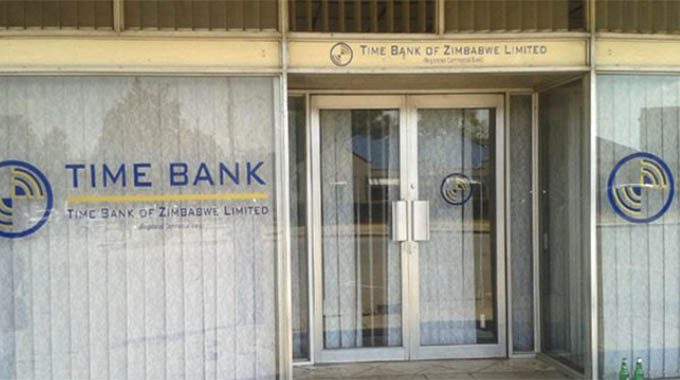Time Bank wins land case

Golden Sibanda
Senior Business Reporter
TIME Bank Investment Corporation (TBIC) has won a High Court case in which a former executive of its subsidiary, Mr Oniyas Gumbo, claimed to be a director of and shareholder in the group’s real estate unit, Watermount Estates Private Limited.
High Court Judge Justice Webster Chinamora, ruled on December 7, 2020 that on the basis of the settlement agreements between the parties signed in January 2011 and February 2011, Gumbo lacked locus standi because he is neither a shareholder nor director of Watermount.
The Judge also ruled that Mr Kwaziso Bhosha and Mr John Mwarumba are not directors of Watermount, contrary to submission Mr Gumbo made in the court documents of the case he has just lost at the High Court.
Mr Gumbo, who is a former director of Watermount after he resigned from the position on November 30, 2004, also illegally claimed to be sole owner of Watermount and beneficial shareholder of Trimiant Investments, another wholly owned subsidiary of TBIC.
Watermount Estate Private Limited, wholly owned by TBIC, is the owner and developer of the disputed property known as Craig Crag Estate measuring 600 9072 hectares and Lot 1 East Anglia of the Craig of Crag measuring a total of 13 6998 hectares.
Notably, Mr Gumbo claimed to be a director of Watermount Estates Private Limited despite clear evidence from records of his resignation and voluntary settlement agreement signed between him and TBIC shareholders in 2011 not supporting his claim.
The claim of ownership and directorship by Mr Gumbo violates the settlement agreement, which declares that he, directly or through someone, has never been a shareholder in Time Bank Investment Corporation or any companies that are associated with the group.
The agreement, in which Mr Gumbo admitted he did not hold shares in Watermount or its associates, was facilitated by the Attorney General (AGs) office, following a voluntary out of court agreement relating to another court case to resolve a dispute between the parties.
Justice Chinamora, quoting another case between Zimbabwe Stock Exchange and Zimbabwe Revenue Authority, said in a common law on locus standi in judicio, when instituting litigation to justify participation, a party must show direct substantial interest in a right which is the subject matter of proceedings.
“The common law is applicable in the determination of the question of locus standi of persons (such as in the HC4946/20) seeking to enforce statutory right unless the particular statute prescribes the specific requirements for locus standi.
“Owing to the admitted position that the 2nd applicant (Oniyas Gumbo) has no claim to the shares in Watermount Private Limited, this begs the question: on what basis has he brought the present application to advance interests he does not have shares in the first applicant (Watermount),” queried the judge.
The High Court Judge added that Mr Gumbo’s argument that he was still a shareholder in Watermount Estate did not sit well with the CR14 on record, an official Government document, which shows that he had relinquished his directorship a long time ago.
The court rejected what it termed a dismal attempt to deny the record of CR14 stating that Mr Gumbo resigned from his directorship and on the basis of that he ruled that he had no authority to file proceedings on behalf of Watermount.
“The point is that when dealing with a case where an applicant is litigating on the basis of a claimed shareholding in a company, he must show the existence of such shares.
“Any claim to the shares in Watermount Estates Private Limited is undermined by the compromise agreements signed in January 2011 and February 2011,” the Judge said.
Justice Chinamora said given the compromise agreements, the applicants ought not to have brought the application as they had no locas standi to do as such.
“The situation of the second applicant (Oniyas Gumbo) was compounded by the CR14, which testified to his resignation as a director of the first applicant,” he said. The judge noted that the court cannot ignore the presumption of regularity raised by documents filed with the company’s registry.










Comments